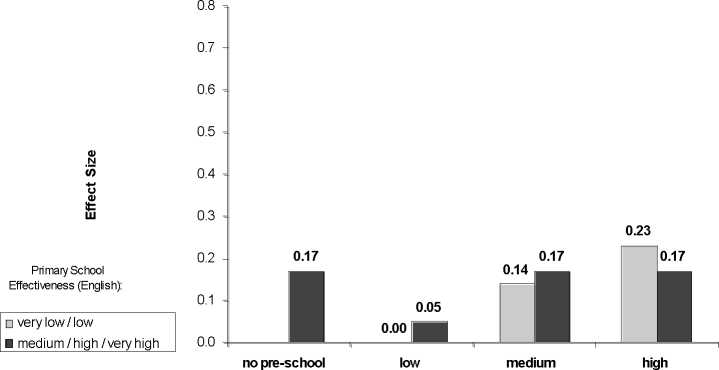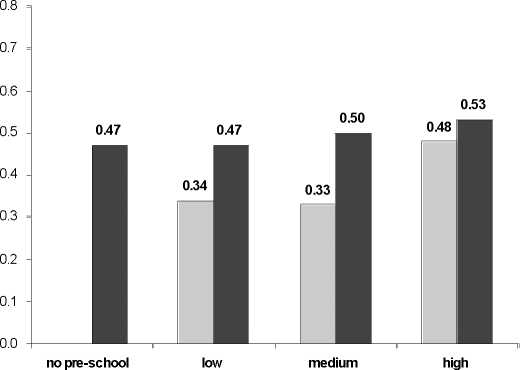the group who had attended a pre-school centre of low quality, this difference in ES is most
distinct).
Figure 3.8: The combined impact of pre-school quality and primary school effectiveness on
attainment in Reading at Year 5_____________________________________________
The Combined Impact of Pre -School Quality
and Primary School Effectiveness: Reading

Pre-School Quality
Reference Group: No Pre -School and
Very low / low Primary School Effectiveness
Figure 3.9: The combined impact of pre-school quality and primary school effectiveness on
attainment in Mathematics at Year 5
The Combined Impact of Pre -School Quality and
Primary School Effectiveness: Mathematics
Primary School
Effectiveness (English):
□ very low / low
medium / high / very high

Pre-School Quality
Reference Group: No Pre -School and
Very low / low Primary School Effectiveness
Figure 3.9 shows there are stronger effects, in line with earlier findings: Children who did not go
to pre-school show a particularly strong benefit from attending a more academically effective
primary school (ES 0.47) compared to ‘home’ children who went to a less academically effective
primary school. Children who went to a low or medium quality pre-school centre and low
23
More intriguing information
1. A Study of Adult 'Non-Singers' In Newfoundland2. Happiness in Eastern Europe
3. Structural Influences on Participation Rates: A Canada-U.S. Comparison
4. Detecting Multiple Breaks in Financial Market Volatility Dynamics
5. The name is absent
6. The Role of Immigration in Sustaining the Social Security System: A Political Economy Approach
7. Update to a program for saving a model fit as a dataset
8. The name is absent
9. The Folklore of Sorting Algorithms
10. Managing Human Resources in Higher Education: The Implications of a Diversifying Workforce